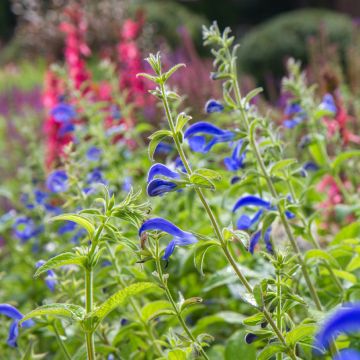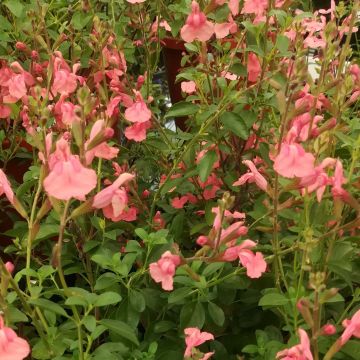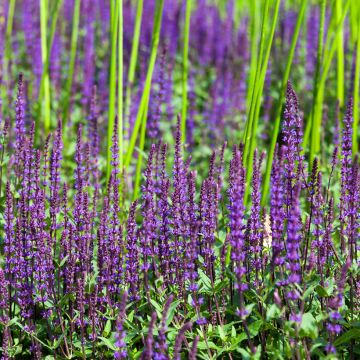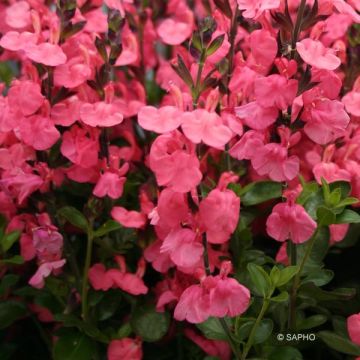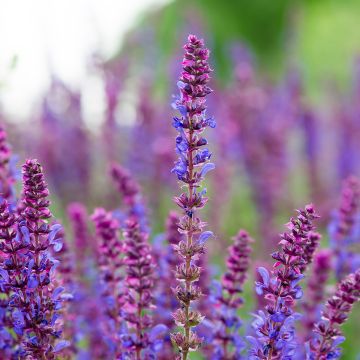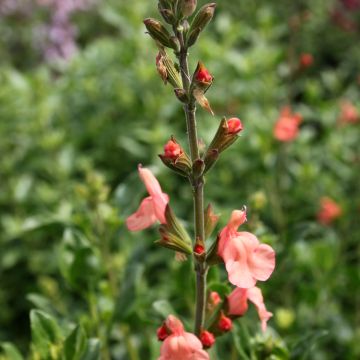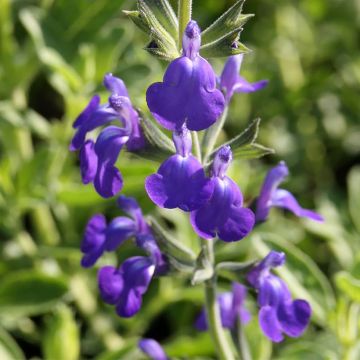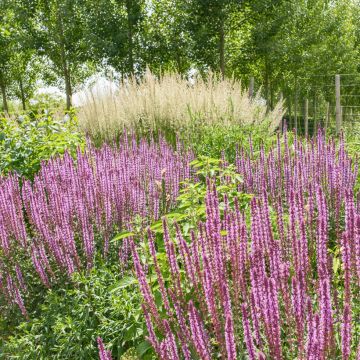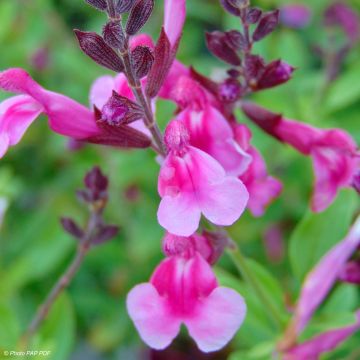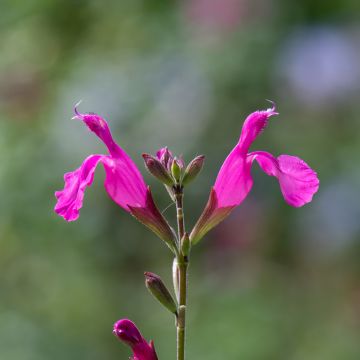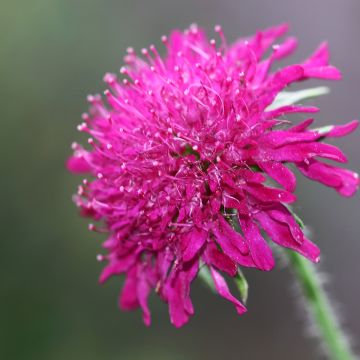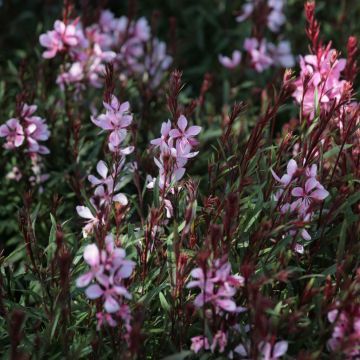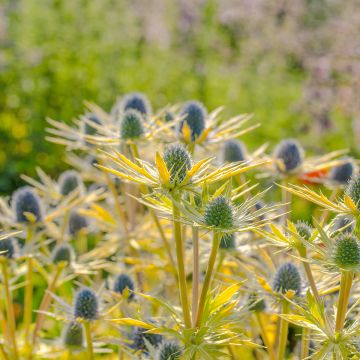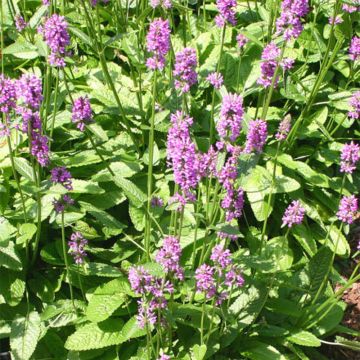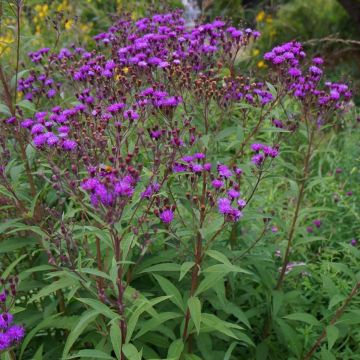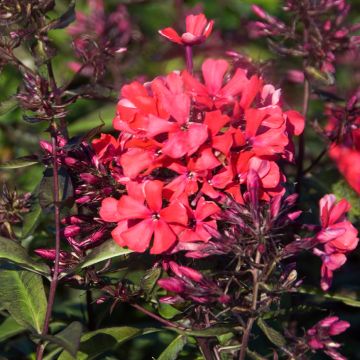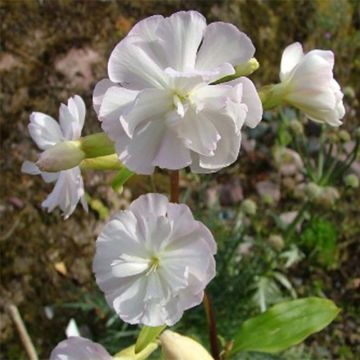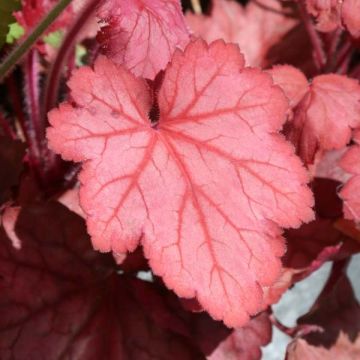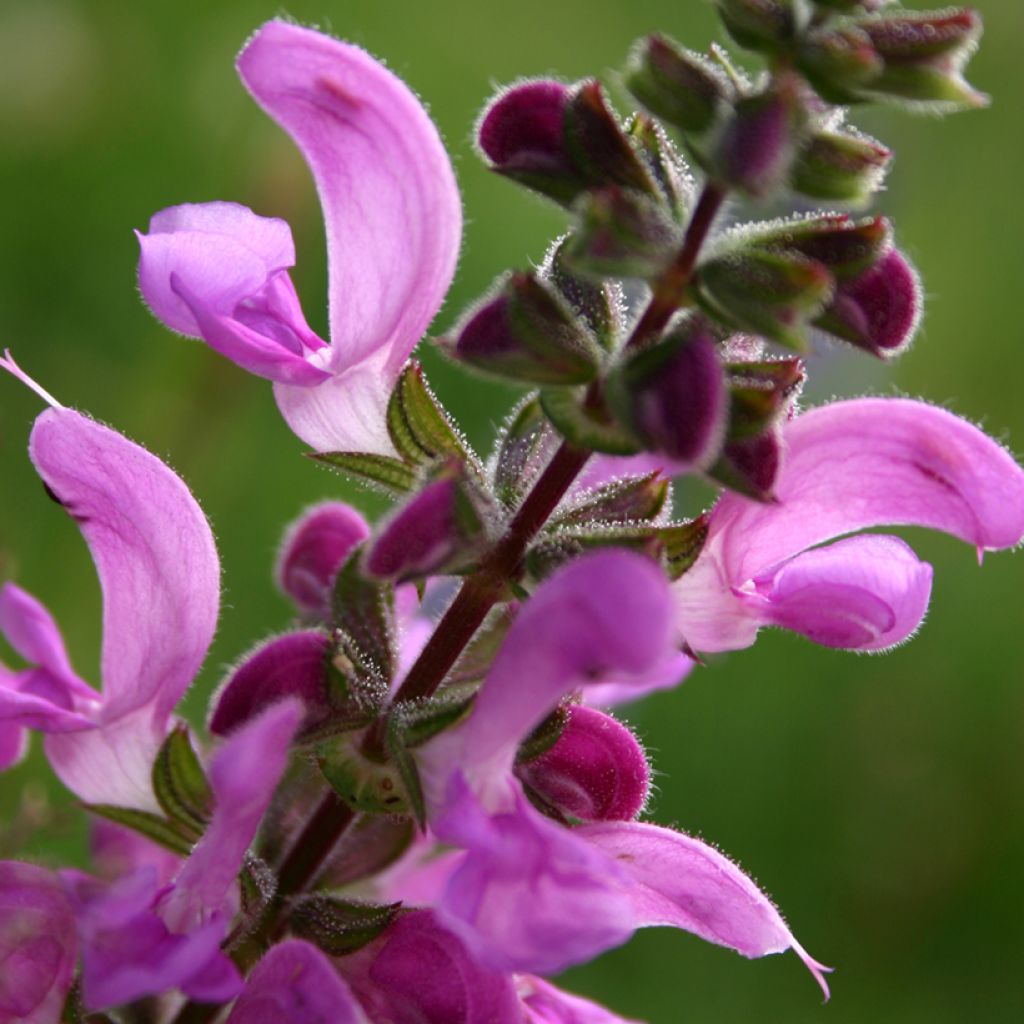

Salvia pratensis Sweet Esmeralda - Meadow Sage
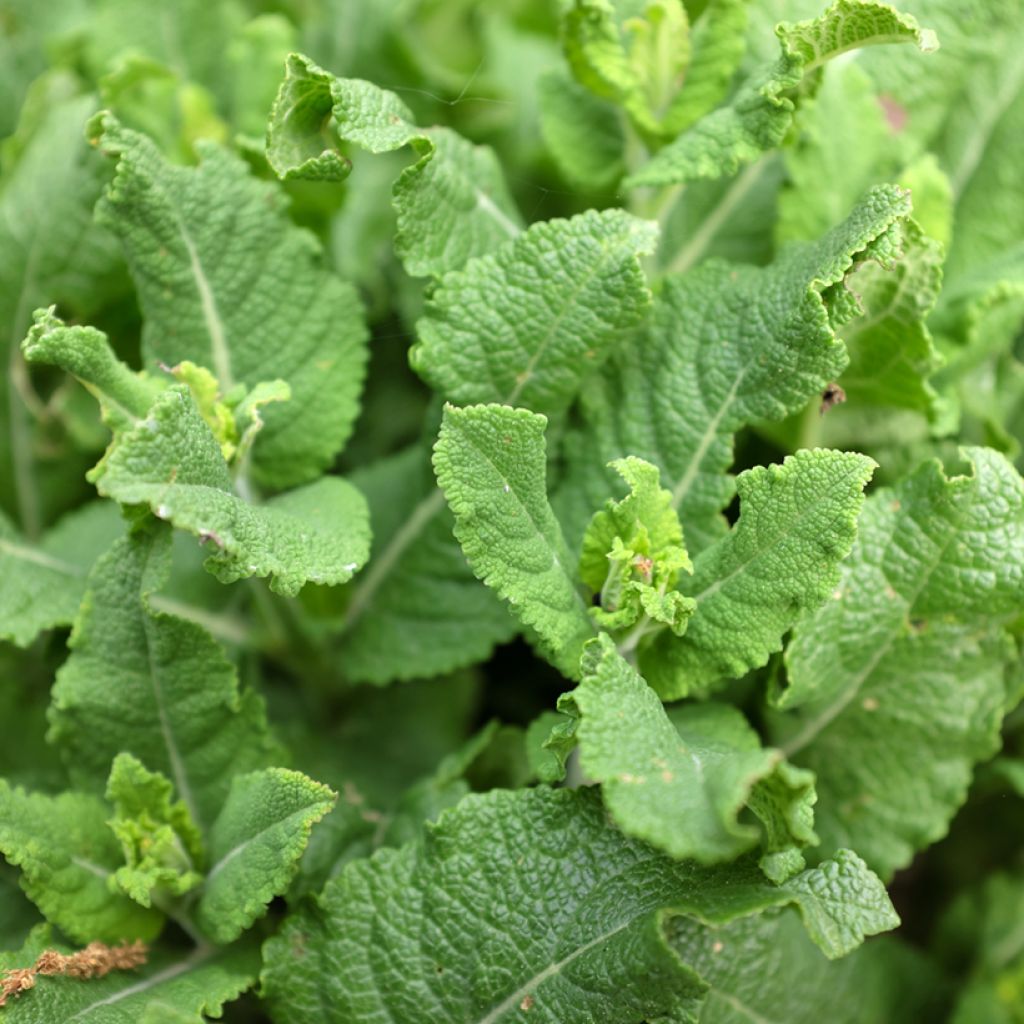

Salvia pratensis Sweet Esmeralda - Meadow Sage
Salvia pratensis Sweet Esmeralda - Meadow Sage
Salvia pratensis Sweet Esmeralda
Meadow Sage, Wild Sage, Meadow Clary
Plant in good condition and delivered on time.
Pierre C., 13/05/2023
This item cannot be shipped to the selected country
Delivery charge from €5.90
Delivery to Corse prohibited
More information
Schedule delivery date,
and select date in basket
This plant carries a 12 months recovery warranty
More information
We guarantee the quality of our plants for a full growing cycle, and will replace at our expense any plant that fails to recover under normal climatic and planting conditions.
From €5.90 for pickup delivery and €6.90 for home delivery
Express home delivery from €8.90.
Delivery to Corse prohibited: UE law prohibits the import of this plant from mainland France to Corse as part of the fight against Xylella fastidiosa. Please accept our sincere apologies.
More information
Does this plant fit my garden?
Set up your Plantfit profile →
Description
The Salvia pratensis 'Sweet Esmeralda' is a lovely variety of the meadow sage, a robust plant found in fields and gardens. It is a highly colourful and extremely floriferous perennial, producing spikes of small flowers in intense magenta pink. They bloom throughout the summer, reaching a height of 50 cm (20in) above a densely leafy tuft. Resistant to cold, low water requirements, and tolerant of clay and limestone soils, it is one of the easiest plants to grow, perfect for borders or mass plantings, in full sun or partial shade.
Native to Western Europe to the Caucasus, the meadow sage Salvia pratensis is a hardy herbaceous perennial that thrives in sunlight and dry soils. The 'Sweet Esmeralda' variety, introduced in Germany in 2008, stands out with its vibrant and unusual deep pink flowers. Its foliage is semi-evergreen in winter, forming clumps that can cover 80 cm (32in) in diameter. This medium-sized variety produces multiflorous inflorescences on stems 50 cm (20in) tall, adorned with long tubular flowers and dark pink lips that have a hint of mauve. The flowers bloom from June and continue without interruption until August, attracting butterflies and bees. The leaves are ovate to oblong, rough and plicate, with serrated edges, mainly arranged in basal rosettes. A few small leaves are also present on the square-sectioned floral stems.
'Sweet Esmeralda' meadow sage is vigorous enough to outcompete weeds. Like its blue ancestor, it thrives on slopes, helping to stabilize them with its deep roots, which allow it to draw moisture even during heatwaves. Therefore, it is perfect for maintaining the soil in rock gardens or along the edges of water features. It is a highly resistant plant, tolerating prolonged periods of drought and harsh growing conditions. It even thrives in chalky soils and endures severe winters without weakening. In borders, this beautiful wildflower can be paired with its cousins the clary sage and the common sage, small ornamental grasses, blue baptisias, Nepeta x faassenii, lychnis coronaria.
With over 900 species of annuals, perennials, and soft-wooded shrubs distributed worldwide, excluding very cold regions and tropical forests, the Salvia genus is the most diverse in the mint family. The name Salvia, dating back to Roman times, derives from the Latin salvus, meaning 'healthy', alluding to the medicinal properties of common sage.
Report an error about the product description
Salvia pratensis Sweet Esmeralda - Meadow Sage in pictures
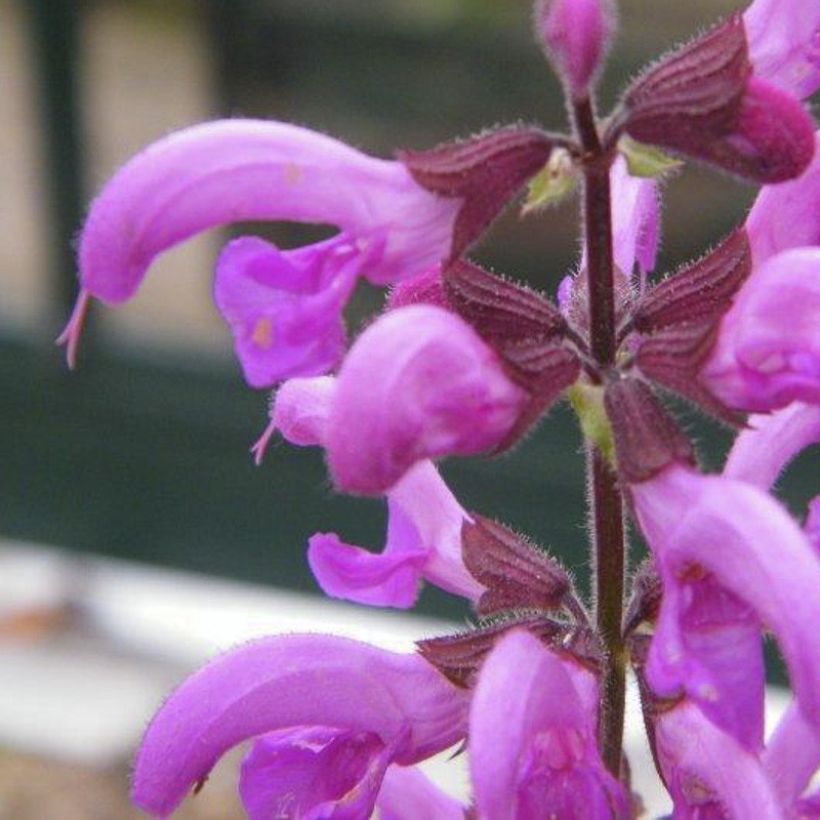

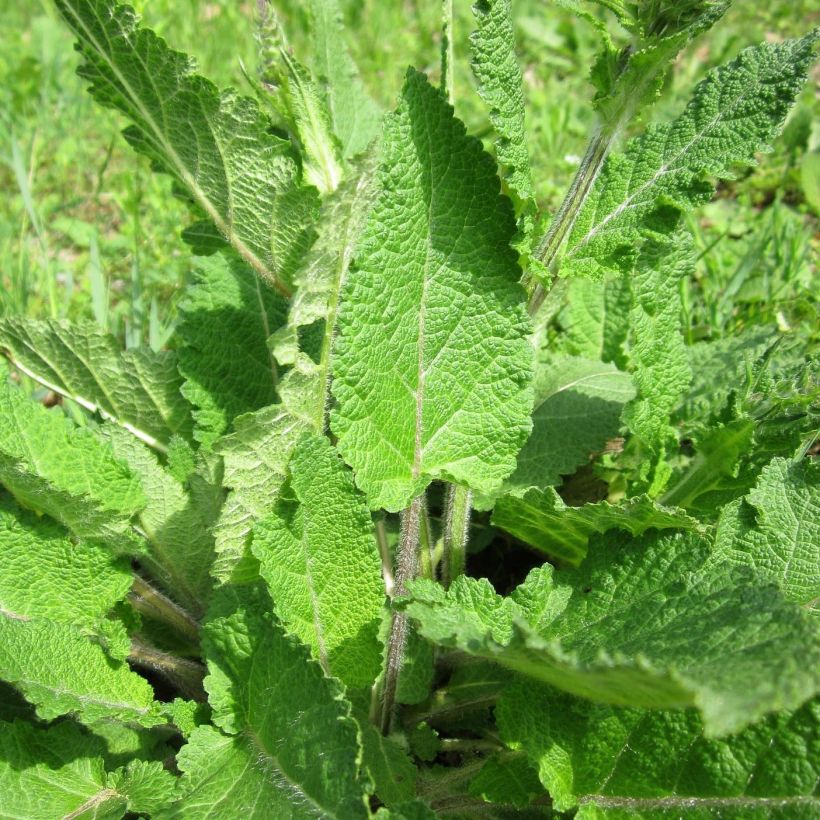

Flowering
Foliage
Plant habit
Botanical data
Salvia
pratensis
Sweet Esmeralda
Lamiaceae
Meadow Sage, Wild Sage, Meadow Clary
Cultivar or hybrid
Other Salvia - Sage
Planting and care
Install the 'Sweet Esmeralda' sage in ordinary soil, even clay-limestone, but above all well-prepared, loosened and relatively draining. This plant tolerates some drought in summer; however, this can harm its flowering. It does not appreciate soils that are both heavy and waterlogged in winter, which can harm its hardiness. Plant this plant in a sunny or semi-shady location. It is an easy plant, very floriferous. Fertilize in spring and then in April, cut all the branches in half. Cut the faded floral stems to stimulate and prolong flowering. To preserve the vitality of the sage, it is good to divide the plant after three years. Plant the new plants in well-worked soil: to improve soil that is a little too poor or too compact, mix in some horticultural compost.
Planting period
Intended location
Care
-
, onOrder confirmed
Reply from on Promesse de fleurs
Summer flowering perennials
Haven't found what you were looking for?
Hardiness is the lowest winter temperature a plant can endure without suffering serious damage or even dying. However, hardiness is affected by location (a sheltered area, such as a patio), protection (winter cover) and soil type (hardiness is improved by well-drained soil).

Photo Sharing Terms & Conditions
In order to encourage gardeners to interact and share their experiences, Promesse de fleurs offers various media enabling content to be uploaded onto its Site - in particular via the ‘Photo sharing’ module.
The User agrees to refrain from:
- Posting any content that is illegal, prejudicial, insulting, racist, inciteful to hatred, revisionist, contrary to public decency, that infringes on privacy or on the privacy rights of third parties, in particular the publicity rights of persons and goods, intellectual property rights, or the right to privacy.
- Submitting content on behalf of a third party;
- Impersonate the identity of a third party and/or publish any personal information about a third party;
In general, the User undertakes to refrain from any unethical behaviour.
All Content (in particular text, comments, files, images, photos, videos, creative works, etc.), which may be subject to property or intellectual property rights, image or other private rights, shall remain the property of the User, subject to the limited rights granted by the terms of the licence granted by Promesse de fleurs as stated below. Users are at liberty to publish or not to publish such Content on the Site, notably via the ‘Photo Sharing’ facility, and accept that this Content shall be made public and freely accessible, notably on the Internet.
Users further acknowledge, undertake to have ,and guarantee that they hold all necessary rights and permissions to publish such material on the Site, in particular with regard to the legislation in force pertaining to any privacy, property, intellectual property, image, or contractual rights, or rights of any other nature. By publishing such Content on the Site, Users acknowledge accepting full liability as publishers of the Content within the meaning of the law, and grant Promesse de fleurs, free of charge, an inclusive, worldwide licence for the said Content for the entire duration of its publication, including all reproduction, representation, up/downloading, displaying, performing, transmission, and storage rights.
Users also grant permission for their name to be linked to the Content and accept that this link may not always be made available.
By engaging in posting material, Users consent to their Content becoming automatically accessible on the Internet, in particular on other sites and/or blogs and/or web pages of the Promesse de fleurs site, including in particular social pages and the Promesse de fleurs catalogue.
Users may secure the removal of entrusted content free of charge by issuing a simple request via our contact form.
The flowering period indicated on our website applies to countries and regions located in USDA zone 8 (France, the United Kingdom, Ireland, the Netherlands, etc.)
It will vary according to where you live:
- In zones 9 to 10 (Italy, Spain, Greece, etc.), flowering will occur about 2 to 4 weeks earlier.
- In zones 6 to 7 (Germany, Poland, Slovenia, and lower mountainous regions), flowering will be delayed by 2 to 3 weeks.
- In zone 5 (Central Europe, Scandinavia), blooming will be delayed by 3 to 5 weeks.
In temperate climates, pruning of spring-flowering shrubs (forsythia, spireas, etc.) should be done just after flowering.
Pruning of summer-flowering shrubs (Indian Lilac, Perovskia, etc.) can be done in winter or spring.
In cold regions as well as with frost-sensitive plants, avoid pruning too early when severe frosts may still occur.
The planting period indicated on our website applies to countries and regions located in USDA zone 8 (France, United Kingdom, Ireland, Netherlands).
It will vary according to where you live:
- In Mediterranean zones (Marseille, Madrid, Milan, etc.), autumn and winter are the best planting periods.
- In continental zones (Strasbourg, Munich, Vienna, etc.), delay planting by 2 to 3 weeks in spring and bring it forward by 2 to 4 weeks in autumn.
- In mountainous regions (the Alps, Pyrenees, Carpathians, etc.), it is best to plant in late spring (May-June) or late summer (August-September).
The harvesting period indicated on our website applies to countries and regions in USDA zone 8 (France, England, Ireland, the Netherlands).
In colder areas (Scandinavia, Poland, Austria...) fruit and vegetable harvests are likely to be delayed by 3-4 weeks.
In warmer areas (Italy, Spain, Greece, etc.), harvesting will probably take place earlier, depending on weather conditions.
The sowing periods indicated on our website apply to countries and regions within USDA Zone 8 (France, UK, Ireland, Netherlands).
In colder areas (Scandinavia, Poland, Austria...), delay any outdoor sowing by 3-4 weeks, or sow under glass.
In warmer climes (Italy, Spain, Greece, etc.), bring outdoor sowing forward by a few weeks.

































